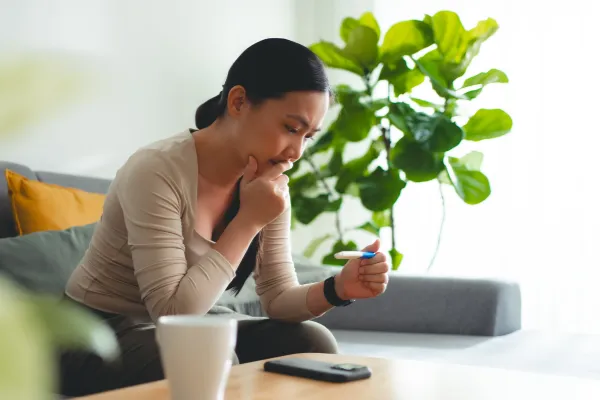Topics
Eye strain has become a common concern for many. Whether you are working long hours on a laptop, binge-watching your favourite TV shows, or spending excessive time in front of screens, you might have experienced eye strain.
What is eye strain?
Human eyes are intricate sensory organs, vital for vision, enabling us to see our surroundings.
Eye strain refers to discomfort or fatigue in the eyes that occurs after prolonged use, particularly in activities such as reading, staring at screens, or driving for extended periods. It can lead to various uncomfortable symptoms and, if left unmanaged, can significantly impact your daily life.
The duration of eye strain can vary, but it often occurs after several hours of screen time. It may last for several hours to even days in some circumstances. If not addressed, it can persist and even become chronic. Preventing and managing eye strain is essential for long-term eye health.
What are the symptoms of eye strain?
Eye strain symptoms can vary from person to person, but some common complaints include:
- Sore, tired or irritated eyes
- Dry or watery eyes
- Headache
- Increased sensitivity to light
- Muscle fatigue
- Heavy eyes
- Difficulty focusing
What are the causes of eye strain?
Several factors contribute to eye strain:
- Prolonged screen time: Spending extended hours in front of digital screens, like laptops and smartphones, is a significant cause of eye strain.
- Poor lighting: Insufficient or harsh lighting in your workspace can strain your eyes as they struggle to adapt to the conditions.
- Poor ergonomic setup: Improper positioning of computer screens, chairs, and desks can contribute to eye strain and other ergonomic issues. For example, screens positioned too high or too low can force the eyes to work at uncomfortable angles.
- Environmental factors: Factors such as air pollution, allergens, and smoke can irritate the eyes and contribute to eye strain.
- Uncorrected vision problems: Refractive errors such as nearsightedness, farsightedness, and astigmatism can cause the eyes to work harder to focus, leading to eye strain if not corrected with glasses or contact lenses.
- Dry eyes: Staring at screens during high-concentration activities like video gaming often leads to decreased blinking, which can dry out your eyes and contribute to strain.
What are the seven effective tips to reduce eye strain?
Eye strain is a common issue in our screen-dominated world, but it is also a concern that can be effectively managed. Simple habits and adjustments can make a big difference in reducing eye strain and keeping the eyes healthy and comfortable.
1 Use eye drops (artificial tears)
When you stare at your screen or book for long, there is a high chance you may not blink as often as required. This can dry out the eyes, causing redness and irritation. Artificial tears contain saline and lubricant to moisturise dry eyes and stop itching or red eyes. Over-the-counter lubricating eye drops can help alleviate dryness and provide temporary relief from eye strain symptoms.
2 Ensure right lighting
Ensure that your workspace is well-lit but not too bright. Balanced lighting reduces eye strain significantly. Additionally, the position of the light can affect your eyes too. For example, placing a light in front of your face when reading a book can cause strain to the eyes.
3 Practice good ergonomics
Keep the screen of your computer/tablet at eye level and position it about an arm’s length away. Adjust it to avoid unnecessary neck and eye strain.
4 Ensure good air quality
Dry or polluted air can enhance eye strain. Keep your workspace well-ventilated to prevent dry eyes. Use a humidifier if necessary to maintain the proper humidity level.
5 Get regular eye exams
Schedule routine eye examinations with an optometrist or ophthalmologist to monitor your eye health, identify any underlying issues, and update your vision correction as needed.
6 Blink to refresh your eyes
Consciously remind yourself to blink more often while using screens. Blinking helps keep your eyes lubricated and comfortable.
7 Practice relaxation techniques
Incorporate relaxation techniques such as deep breathing, meditation, or gentle eye exercises to relieve tension in the eye muscles and promote overall relaxation.
Make an appointment at Pantai Hospitals
Remember, your eye health is essential, so take the necessary steps to keep them refreshed in this digital age. Get in touch with us to book an appointment today for a consultation, or visit our Ophthalmology Department at your nearest Pantai Hospital.
Pantai Hospitals have been accredited by the Malaysian Society for Quality in Health (MSQH) for its commitment to patient safety and service quality.













